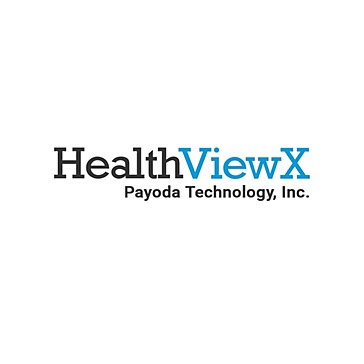Description

RxPx

ClinicalKey
Comprehensive Overview: RxPx vs ClinicalKey
RxPx and ClinicalKey are two distinct products aimed at the healthcare sector, each serving different purposes but with overlapping user demographics, primarily composed of healthcare professionals. Here's an overview of each, along with a comparison:
a) Primary Functions and Target Markets
RxPx:
Primary Functions:
- Prescription Management: RxPx is primarily focused on enhancing the prescription process by offering tools for medication management, ensuring accurate dosing, and improving patient adherence.
- Patient Engagement: It provides platforms for better patient communication and education, helping them understand their treatment plans.
- Medication Safety: Offers safety alerts and checks to prevent adverse drug interactions.
Target Markets:
- Healthcare Providers: Physicians, pharmacists, and other medical practitioners who need efficient prescription management solutions.
- Healthcare Organizations: Hospitals, clinics, and health systems seeking to improve medication safety and patient outcomes.
ClinicalKey:
Primary Functions:
- Medical Reference and Knowledge: ClinicalKey provides access to a comprehensive database of medical literature, including journals, textbooks, videos, and clinical guidelines.
- Decision Support: Offers evidence-based clinical answers and decision-support tools to aid in diagnosis and treatment planning.
- Continuing Education: Features modules for Continuing Medical Education (CME) credits for healthcare professionals.
Target Markets:
- Healthcare Professionals: Doctors, nurses, and allied health professionals requiring quick access to up-to-date medical information.
- Academic Institutions: Medical schools and universities utilizing ClinicalKey for educational purposes and research.
- Hospitals and Clinics: Institutions that need a reliable, centralized source of medical information for staff.
b) Market Share and User Base
- RxPx: Since RxPx is a niche product focusing on prescription management and patient engagement, its market share is likely more limited compared to broader healthcare solutions. Its user base typically consists of healthcare providers directly involved in the prescribing process.
- ClinicalKey: As a product offered by Elsevier, a prominent provider in medical information and analytics, ClinicalKey boasts a significant share in the medical reference market. It has a substantial user base of healthcare professionals and institutions due to its comprehensive resources and established reputation.
c) Key Differentiating Factors
-
Functionality:
- RxPx is more focused on the practical aspects of prescribing and patient interaction, making it ideal for settings where medication management and patient communication are prioritized.
- ClinicalKey, on the other hand, is more expansive in its offerings, providing in-depth knowledge resources, decision support, and educational tools.
-
Content Access:
- RxPx is designed for real-time prescription workflows and patient interaction, with alerts and reminders tailored for immediate application in patient care scenarios.
- ClinicalKey provides a vast repository of medical content, suitable for learning, teaching, and research, along with tools for clinical decision support.
-
Integration and Usage:
- RxPx is often integrated into electronic health records (EHR) systems to streamline the prescribing process and enhance medication safety.
- ClinicalKey is accessible directly via web-based platforms and apps, which integrate with institutional systems for seamless access to information across departments.
In summary, while both products serve healthcare professionals, RxPx is centered around prescription management and patient engagement, whereas ClinicalKey focuses on providing a wide range of medical knowledge and decision support. Their market presence and user base reflect their differing purposes, with ClinicalKey capturing a broader academic and institutional audience.
Contact Info

Year founded :
2013
+1 855-888-2031
Not Available
Australia
http://www.linkedin.com/company/rxpx-health

Year founded :
Not Available
Not Available
Not Available
Not Available
Not Available
Feature Similarity Breakdown: RxPx, ClinicalKey
Certainly, a feature similarity breakdown between RxPx and ClinicalKey can help in understanding their overlapping features, differences in user interface, and unique attributes. Since specific details can change over time and may vary based on the platform updates or user feedback, I will provide a general comparison based on common aspects associated with medical and pharmaceutical information platforms.
a) Core Features in Common
-
Comprehensive Database Access:
- Both platforms likely offer access to a large database of medical and pharmaceutical information, which includes drug information, clinical guidelines, and evidence-based practice content.
-
Search Functionality:
- Advanced search capabilities that allow users to find specific medical information quickly through keywords, conditions, treatment protocols, and more.
-
User Personalization:
- Options to customize the interface or content based on user specialties, interests, or frequently accessed topics to enhance the user experience.
-
Clinical Decision Support:
- Tools and resources that assist healthcare professionals in making informed clinical decisions, such as dosing calculators, drug interactions, and treatment algorithms.
-
Multimedia Content:
- Access to visual media like images, videos, and diagrams to help in understanding complex medical topics and procedures.
b) Comparison of User Interfaces
-
Navigation and Layout:
- Both platforms are designed for ease of use, but there might be differences in terms of the user interface layout, such as menu organization, which affects how users navigate through various sections.
-
Mobile and Desktop Compatibility:
- Both services should be accessible via multiple devices, with responsive design aspects optimized for both desktop and mobile experiences.
-
Aesthetic and User Experience:
- ClinicalKey may emphasize a more robust, feature-rich interface while maintaining simplicity, suitable for deep research, whereas RxPx might focus on streamlined functionality tailored for fast access to drug-related information.
c) Unique Features
-
RxPx:
- Might offer unique features such as specific patient engagement tools, detailed drug rep feedback mechanisms, or tailored communication tools that focus on the pharmaceutical interaction between professionals and patients.
-
ClinicalKey:
- Known for its integration of Elsevier’s extensive range of medical textbooks and journals, ClinicalKey could provide exclusive access to a vertically integrated educational repository.
- May also have unique features like an AI-enhanced search function that improves the relevance of content provided or exclusive clinical overviews written by subject matter experts.
It's important to consult the latest product documentation or contact the providers directly to get the most current information regarding these platforms' specific features and functional nuances.
Features

Not Available

Not Available
Best Fit Use Cases: RxPx, ClinicalKey
RxPx and ClinicalKey are digital solutions designed to enhance healthcare delivery, though they cater to different needs within the healthcare industry. Here's an overview of their best fit use cases:
RxPx
a) For what types of businesses or projects is RxPx the best choice?
RxPx is generally targeted towards healthcare providers and pharmaceutical companies focused on patient engagement, medication management, and personalized care. It is best suited for:
-
Healthcare Providers: Hospitals and clinics looking to improve patient adherence and engagement through digital tools that facilitate communication between patients and healthcare providers.
-
Pharmaceutical Companies: Firms aiming to enhance patient support programs by providing tailored information about medications, dosages, and potential side effects.
-
Telemedicine Services: Companies that offer remote healthcare services and need digital tools to manage prescriptions and patient interactions effectively.
d) How does RxPx cater to different industry verticals or company sizes?
-
Industry Vertical: RxPx primarily targets the healthcare sector, focusing on medication management and patient-provider communication.
-
Company Size: It is well-suited for both large healthcare networks looking to standardize their digital patient interaction processes and smaller clinics seeking scalable solutions to improve patient care.
ClinicalKey
b) In what scenarios would ClinicalKey be the preferred option?
ClinicalKey is an extensive medical knowledge platform that serves as an indispensable resource for healthcare professionals seeking comprehensive, evidence-based information. It is the preferred option in scenarios such as:
-
Medical Education and Training: Institutions requiring a rich repository of medical textbooks, journals, and multimedia resources for teaching and research purposes.
-
Healthcare Research and Decision Making: Hospitals and clinical settings that demand quick and reliable access to the latest clinical information to support evidence-based practice.
-
Pharmaceutical Research: Companies involved in drug development needing detailed clinical insights and research data for competitive analysis and product development.
d) How does ClinicalKey cater to different industry verticals or company sizes?
-
Industry Vertical: ClinicalKey is aimed at healthcare education, clinical practice, and research sectors, providing resources that support knowledge acquisition and evidence-based practice.
-
Company Size: Suitable for both individual practitioners seeking a comprehensive clinical reference and large healthcare institutions that require extensive medical and scientific content.
In summary, RxPx is ideal for businesses focusing on patient engagement and medication management, while ClinicalKey is better suited for providers needing in-depth medical knowledge and decision support. Both cater to diverse healthcare needs, serving various company sizes from solo practitioners to large health systems and educational institutions.
Pricing

Pricing Not Available

Pricing Not Available
Metrics History
Metrics History
Comparing teamSize across companies
Conclusion & Final Verdict: RxPx vs ClinicalKey
When evaluating RxPx and ClinicalKey, both products offer unique features tailored to different aspects of healthcare professionals' needs. Here's a breakdown to help users make an informed decision:
a) Best Overall Value
RxPx tends to offer specialized value, primarily focusing on prescription management, optimizing medication use, and ensuring medication safety. It is highly useful for healthcare providers who need comprehensive tools for managing patient prescriptions efficiently.
ClinicalKey, on the other hand, provides extensive clinical information, including access to a vast library of medical literature, textbooks, and multimedia resources. It is designed to support clinicians with current and evidence-based information across a broad range of specialties.
Verdict: The best overall value depends on your primary needs. If your main focus is optimizing medication management and safety, RxPx offers specialized solutions. However, if your primary requirement is broad access to clinical resources and up-to-date medical information, ClinicalKey provides more value.
b) Pros and Cons
RxPx Pros:
- Specialized focus on prescription management.
- Tools designed for enhancing medication safety and efficacy.
- Helpful for compliance with medication standards and guidelines.
RxPx Cons:
- Limited in scope if broader medical information is needed.
- May lack extensive research or study materials that are outside of prescription-focused topics.
ClinicalKey Pros:
- Access to a wide array of medical resources, including journals and reference textbooks.
- Up-to-date clinical guidelines and research materials for a wide range of medical fields.
- Valuable for continuous education and research purposes.
ClinicalKey Cons:
- May be overwhelming for users primarily interested in prescription management.
- Subscription costs might be higher, given the extensive database and resources offered.
c) Recommendations
For Users Focused on Prescription Management: If your primary work revolves around prescribing medications and ensuring best practices in prescription safety, RxPx should be your go-to solution due to its focused features tailored to these tasks.
For Users Needing Comprehensive Clinical Information: If your work requires constant reference to the latest research, studies, guidelines, and general medical knowledge spanning various specialties, ClinicalKey is the preferred choice.
For Users Needing Both Aspects: If both prescription management and broad clinical references are crucial to your practice, consider integrating both solutions if budget allows, or evaluating a comprehensive solution that may offer the best features of both.
Ultimately, the decision should be aligned with the specific needs and priorities of your practice or institution. Consider undertaking trial periods (if available) for both platforms to better understand which aligns more closely with your workflow and requirements.
Add to compare



